Here are the best pictures I've seen of black holes in recent memory, courtesy of NASA and Vox.com
Black holes actually have not been photographed as a black "hole" distorting space time. This image, although beautiful, is actually an illustration:
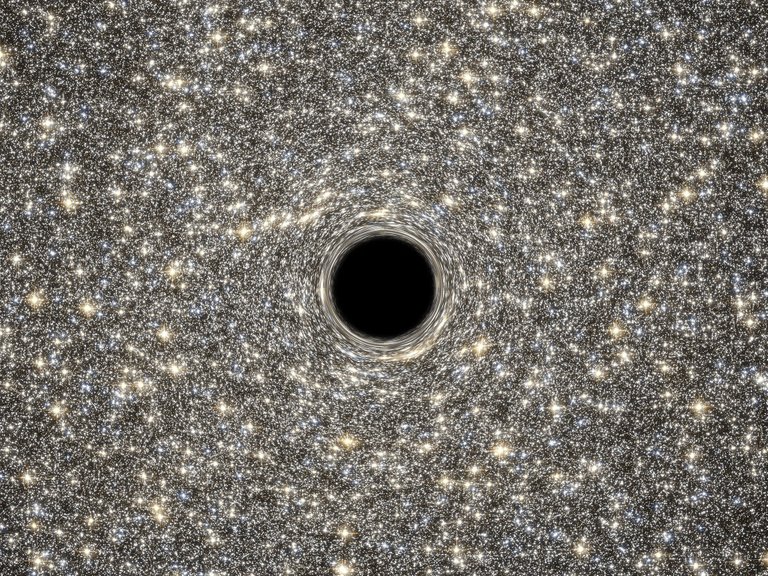
Credit: NASA/Goddard - Posted on Vox.com
In reality, since black holes are infinitely dense remnants of super massive stars, their sizes are relatively tiny. Making them extremely difficult to observe with a telescope. What's more, their darkness is easily obscured by bright objects that they attract through their intense gravity. This makes any direct observation difficult.
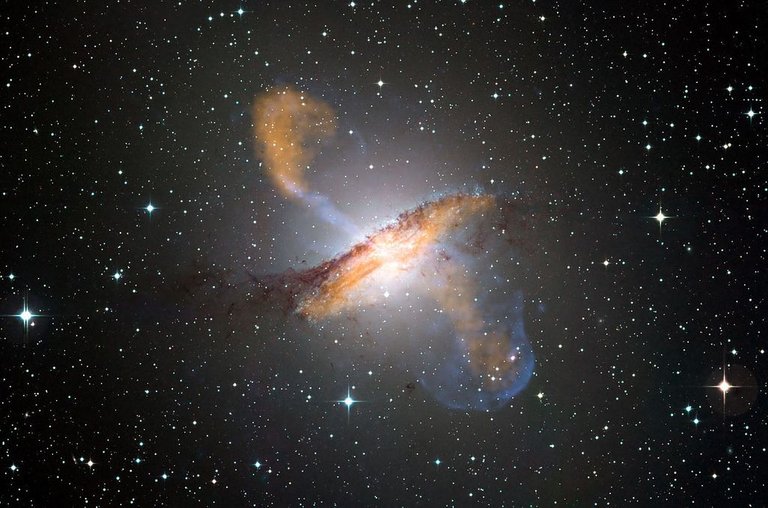
Credit: X-ray: NASA/CXC/Univ of Texas/E.Schlegel et al; Optical: NASA/STScI - Posted on Vox.com
However, black holes can be easily observed through indirect means. The enormous gravitational pull of black holes attracts matter, causing it to travel at nearly the speed of light. Instead of falling in to the black hole,a small amount will shoot past and form jets along the axis of rotation of the black hole. These jets can extend incredibly far outside the reach of a black hole, sometimes having a length greater than the diameter of an entire galaxy.
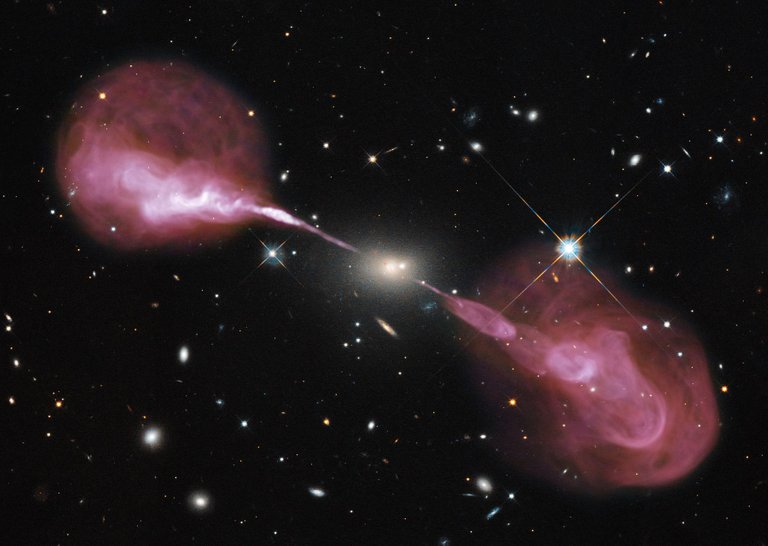
Credit: X-ray: NASA/CXC/Univ of Texas/E.Schlegel et al; Optical: NASA/STScI - Posted on Vox.com
In addition, black holes can be indirectly observed via the intense X-ray radiation that they generate. High velocity combined with friction between gas particles for example results in X-rays that are sometimes visible as "burps" or arcs visible to the right kind of telescope, like the Chandra X-ray Observatory.
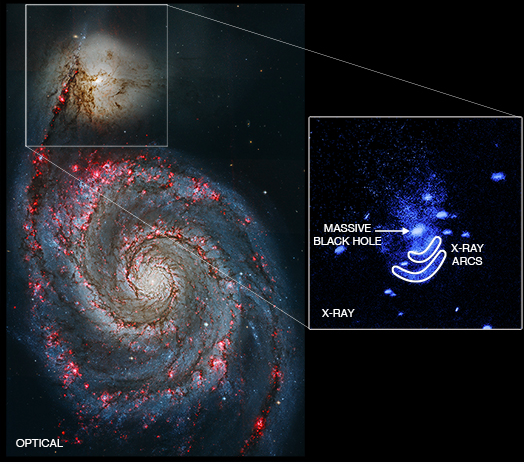
Credit: X-ray: NASA/CXC/MIT/S.Rappaport et al, Optical: NASA/STScI - Posted on Vox.com
X-ray burps (shown in pink) below suggest the presence of black holes in this picture of two colliding galaxies.
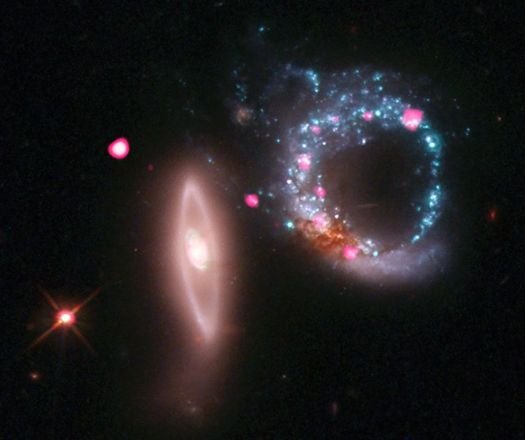
Credit: X-ray: NASA/CXC/MIT/S.Rappaport et al, Optical: NASA/STScI - Posted on Vox.com
Another image below shows X-rays as well as sound waves radiating out of a suspected black hole, courtesy of the Chandra observatory.
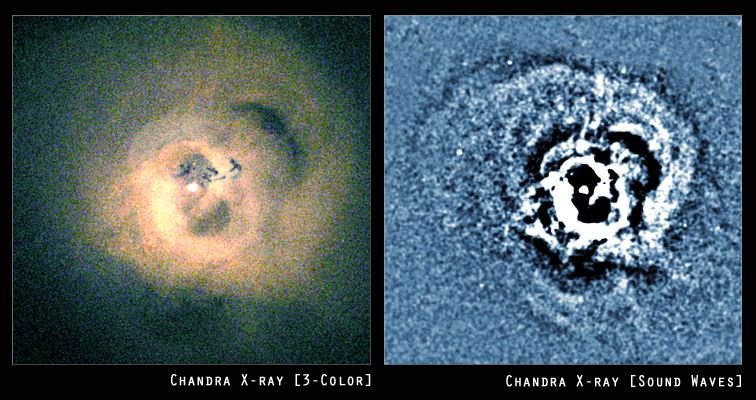
Credit: NASA/CXC/IoA/A.Fabian et al. Posted on Vox.com
Last but not least, black holes can be observed through the effects they have on orbiting stars. The gif below shows what happens when stars caught in the intense gravity of a black hole fire past. Since we know of no other object that can account for this behavior, it seems highly likely that there is a black hole at the center of this image. I wonder how it feels to get slingshotted around a black hole.
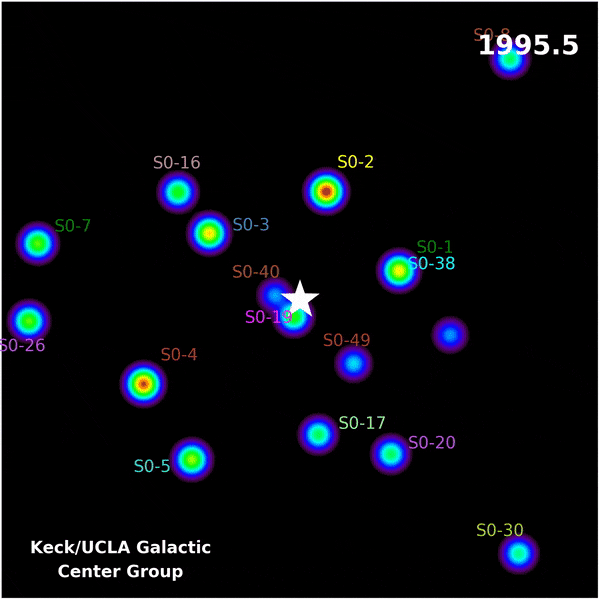
Credit: Keck/UCLA Galactic Center Group
With the recent discovery of gravitational waves on September 14, 2015 from a pair of merging black holes, it is an exciting time in astronomy. You too can participate by downloading BOINC and signing up for a variety of astronomy projects, including, but not limited to, Einstein@home, Universe@home, and Milkyway@home. With Gridcoin, you can even turn a tidy profit!

BOINC
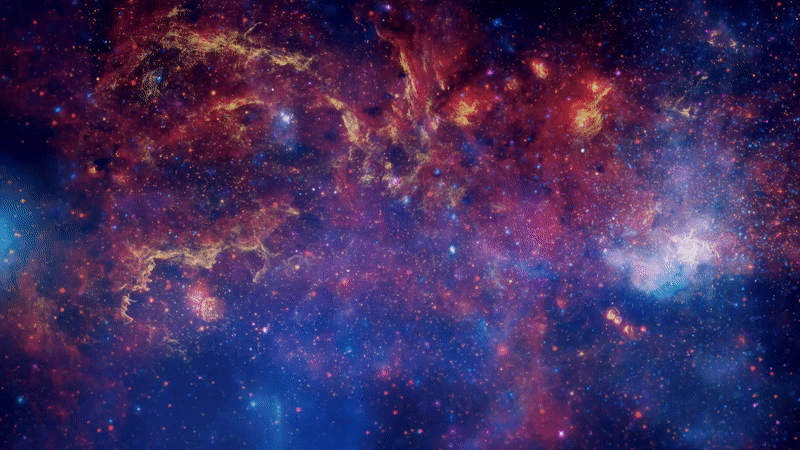
Gridcoin
Credit :@joshoeah for logo
So this is a a black hole looks in a nutshell? :) Thanks for putting this info in the #gridcoin community!
You can also sign in on Gravity Spy at Zooniverse and help out classifying glitches on their received data:
https://www.zooniverse.org/projects/zooniverse/gravity-spy
Very good Images..
Black Holes are my all time favorite.
Keep it up good work @donkeykong9000
Thanks for sharing prof.